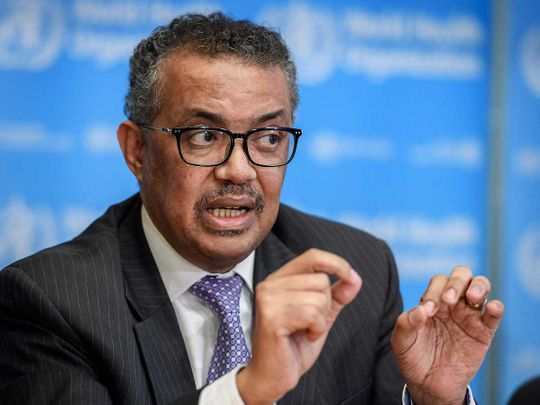 World Health Organization members agreed Monday to strengthen the global body at the heart of the pandemic response and give it a more secure financial base from which to tackle future health crises.
World Health Organization members agreed Monday to strengthen the global body at the heart of the pandemic response and give it a more secure financial base from which to tackle future health crises.
Many of the details of the concrete measures had to be left to a future date, as members continue to debate how much power to cede to the UN body.
But WHO chief Tedros Adhanom Ghebreyesus hailed the resolution passed on the last day of the UN health agency’s annual meeting of its 194 member states as “historic”.
“The world needs a stronger WHO at the centre of the global health architecture,” he said.
A year and a half after the start of the Covid-19 pandemic that has killed more than 3.5 million people, member states agreed to strengthen the organisation at the heart of the global response to the crisis.
The 14-page resolution adopted Monday vowed among other things to remove the uncertainty around the organisation’s funding.
Member states committed to “ensure the adequate, flexible, sustainable and predictable financing of WHO’s programme budget”.
Only about 16 percent of the agency’s budget currently comes from regular membership fees. The rest comes from voluntary contributions that are heavily earmarked by countries for particular projects.
‘Debilitating cycle’
Tedros pointed out that even in the midst of the crisis, low and uncertain funding levels had meant programmes were being planned “in a debilitating cycle of financial ebb and flow”.
“WHO cannot grow stronger without sustainable financing,” he said in closing remarks to the 74th World Health Assembly, which has been held virtually over the past week.
“We cannot pay people with praise.”